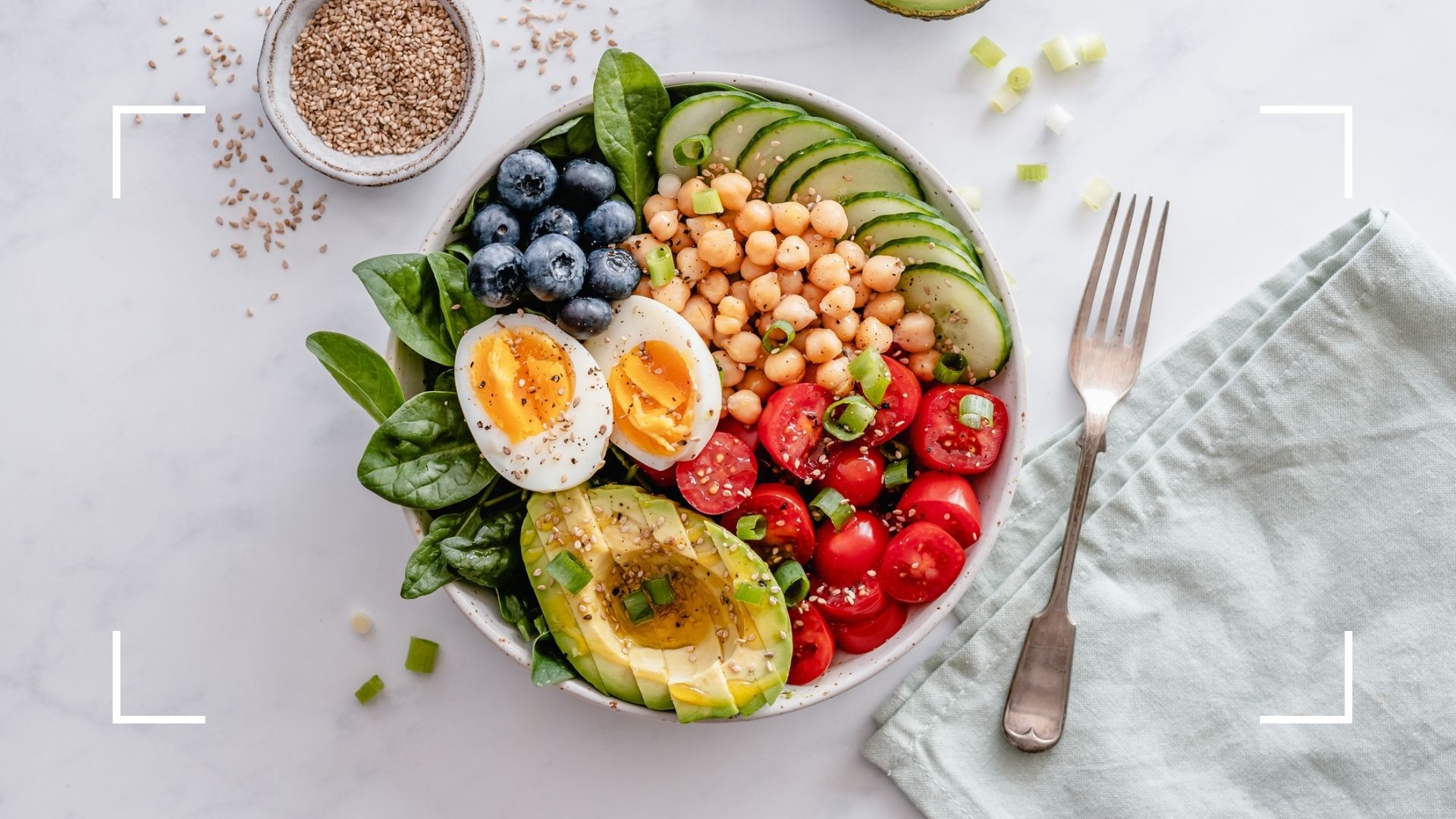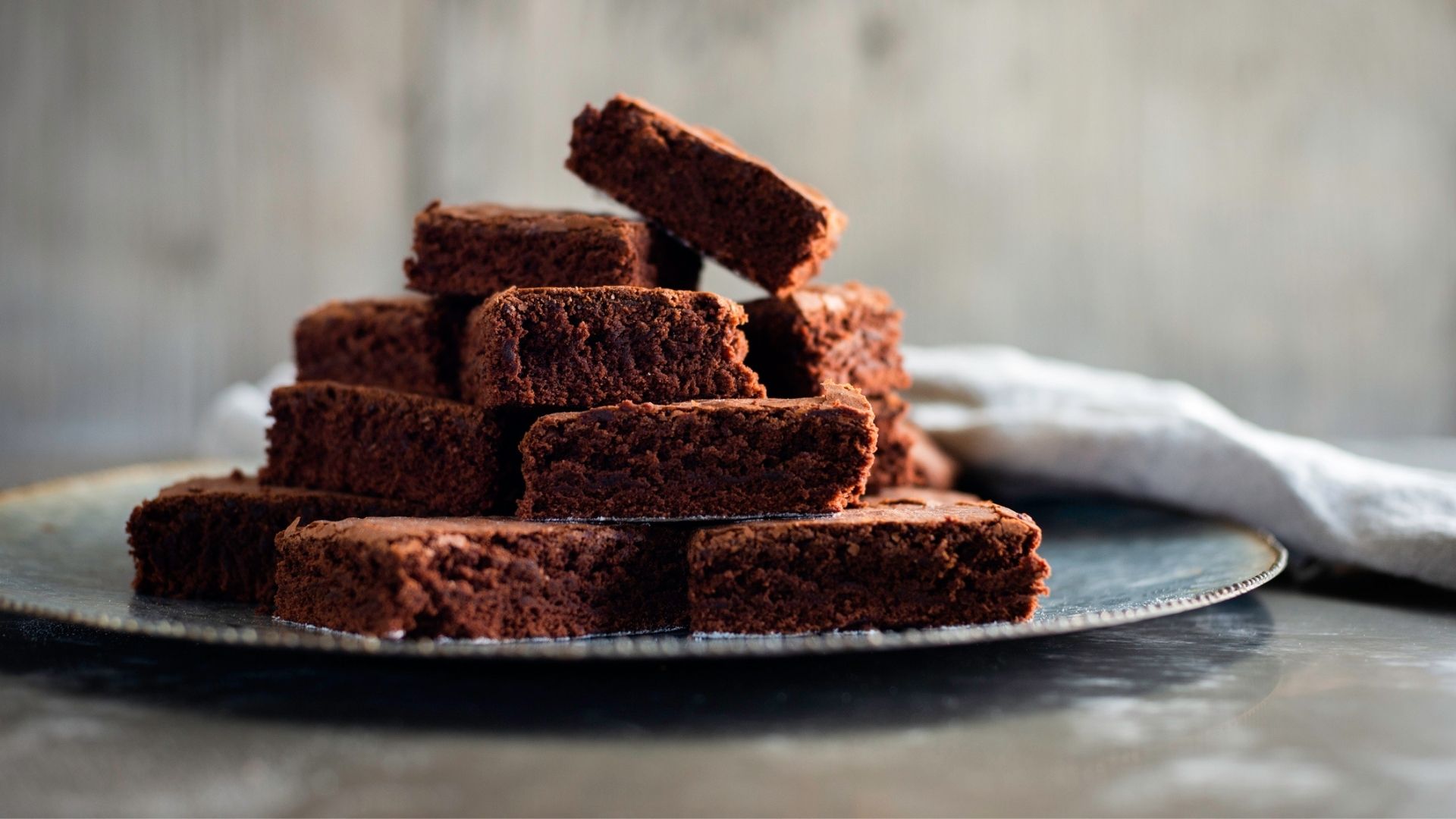What is the 80/20 diet rule and does it work for weight loss?
The 80/20 diet rule could work for you if you want to lose weight or just start eating healthier. A nutritionist explains how


The 80/20 diet rule is economics hand-in-hand with nutrition, a way of eating that’s far from a weight loss plan but promotes healthy eating and better choices all the same.
When trying to lose weight or just eat healthier, it's common to think that we need to cut out entire food groups from our diet because they're seen as 'less healthy' than others. But actually, this is rarely the case and when we do this, we're likely to feel restricted and are much more likely to binge eat the very foods we're trying to stay away from.
Enter the 80/20 diet rule. Much like 80/20 running, it's an 'everything in moderation' approach to eating, encouraging everyone to have the foods they enjoy while prioritizing those higher in macronutrients, vitamins, and minerals. Whether you're trying to get into a calorie deficit to lose weight or just want to incorporate more nutrients into your diet, this is what you need to know about the rule, according to a nutritionist.
What is the 80/20 diet rule?
The 80/20 diet rule is a way of eating that includes nutritionally-rich foods 80% of the time and ‘less-healthy’ and more indulgent foods 20% of the time. It’s based on the Pareto Principle, an economic theory that predicts most consequences (80% of outputs) come from a few causes (20% of inputs). Rather than being a diet plan, it’s similar to intuitive eating in that it’s a mindset and open to interpretation depending on your goals.
However, some would argue that this is just a more complex definition of a balanced diet. The 80/20 rule stipulates foods should predominantly come from across the group of macronutrients but it leaves limited room for foods that may be higher in sugar or saturated fat—just as the NHS definition of a balanced diet suggests.
Diet culture puts so much pressure on us to consider the way we eat, whether that’s when we eat (intermittent fasting) or how we feel about food (intuitive eating), it’s hardly surprising that square one of how to eat healthily has been turned into an eating plan with a new name.
That being said, if you’re looking to have a more balanced approach to food and find that following a rule of sorts works for you, then the 80/20 plan could be for you. Emma Moross, registered nutritionist, RNutr has the lowdown on what it’s all about.
Sign up to our free daily email for the latest royal and entertainment news, interesting opinion, expert advice on styling and beauty trends, and no-nonsense guides to the health and wellness questions you want answered.
How to follow the diet 80/20 rule
If you eat three meals a day, you’ll have 21 meals per week so to follow the 80/20 diet rule, 17 of these need to be unprocessed, lean, and typically healthy meals.
Nutritionist Emma says that this 80% is made up of a “balanced mixture of the main food groups with plenty of healthy choices.” These include:
- Lean proteins: such as chicken, fish, or vegan protein like tofu
- Wholegrain carbohydrates: including quinoa, brown rice, and oats
- Fresh fruits and vegetables
- Healthy fats: such as olive oil, avocado, seeds, and nuts
“For example, a balanced breakfast could be oatmeal topped with berries, cinnamon, and almond butter,” Emma says. “Almonds are a wonderful source of heart-healthy unsaturated fats, fiber, and vitamins.”
The 20% leaves you four meals per week to incorporate any indulgences. If you’re just following the plan to increase your intake of fruits and vegetables, for instance, then there’s nothing to suggest you can’t just eat what you want. But if you're trying to lose weight, you’ll have to be more considered.

80/20 diet—what are the health benefits?
Regardless of why you’re doing it, the 80/20 diet comes with plenty of health benefits and it’s a great alternative for anyone who’d otherwise consider a quick crash diet.
1. Reduces the risk of disease
As the 80/20 diet rule is basically instructions for how to create a balanced diet, it makes achieving one that much easier. This is naturally the top benefit to the rule, as establishing and maintaining a balanced diet is key to reducing the risk of life-threatening illnesses, research by the University of Pavia recently re-established.
The study found that sticking to a diet comprising of plant-based foods, including fresh fruits and vegetables, whole grains, legumes, seeds, and nuts, and having high-fat animal-based foods and processed meats in moderate amounts was linked with a lower chance of developing a range of diseases, from cardiovascular conditions to cancer.
2. Stay fuller for longer
If you have breakfast and then an hour later you’re feeling hungry, chances are you’re not eating enough protein and fiber. These, according to research by the University of Texas Medical Branch, are the two most filling macronutrients as it takes longer for the body to digest them compared to others like carbohydrates and fats. While you can increase how much protein you eat via the best protein powders or treats like high protein ice cream, many of the foods you already eat will be full of this important macronutrient.
By following the 80/20 rule, you’ll include even more in your diet since lean meats and soy products are excellent sources of protein, while whole grains and beans provide top levels of fiber.
3. Reduce your sugar intake
The 80/20 diet is especially great for those who struggle to limit their sugar intake through the day. Research from King’s College London shows that most of us tend to crash out at around 3pm, following a dip in our sugar levels a couple of hours post-lunchtime. While it’s typical to reach for a sweet snack at this time, following 80/20 rule will have you opting for something that will actually keep you satiated like a handful of nuts or a bowl of fruit with Greek yogurt.
“We know that there is room for a little bit of everything in a balanced, healthy diet,” Emma says. “The occasional serving of French fries or chocolate isn’t going to harm you, it’s when our diet is consistently made up of things like saturated fats or lots of sugar that we can run into health problems like heart disease or diabetes.”
If the bulk of your daily eating is fresh, nutritious foods, there’s absolutely nothing wrong with indulging in sugary foods occasionally, she adds. “The odd treat is good for the soul, which is important too. This is what the 80/20 rule focuses on.”
4. It can help you maintain weight loss
Research by Maryland University of Integrative Health found the 80/20 diet rule could be a suitable next step for those looking to maintain their weight after following a more intensive weight loss program. They observed a 55-year-old woman who had been following an elimination diet to initially lose weight and found that switching to the 80/20 rule was a positive next move.
"The 80/20 rule is a flexible approach to weight loss," the researchers explain. "It incorporates balance and moderation, so the individual has room for error. In this rule, 80% compliance to the diet is enough to deliver results without promoting emotions of guilt and failure."
They say that as flexibility was built into her program, she did not feel deprived or feel the need to binge eat, as is common in many restrictive diets.
The best foods for weight loss were also an important addition. "Vegetables were a primary focus, including broccoli, watercress, and leafy greens—foods associated with a reduction in inflammation. Other recommended foods included onions, (high in quercetin), garlic, spices including curcumin and ginger (associated with anti-inflammatory properties), and pomegranates and blueberries (high in antioxidants). Healthy fats were recommended daily," they say.
5. It's easy to follow
Not technically a health benefit, but certainly something to consider if you’re going to follow an eating plan of any kind. “The reason most crash diets don’t work is that people follow them for a few weeks, feel completely deprived, and end up breaking the habit,” Emma says. “The 80/20 rule is more of a lifestyle than a diet as it allows you to focus on eating well most of the time and then indulging yourself some of the time.”
This is a much healthier and more sustainable pattern of eating, she explains. “Most people find it manageable and enjoyable. When done correctly it can be a balanced and healthy way of eating.”
Does the 80/20 diet work for weight loss?
Yes, the 80/20 diet can work for weight loss as long as you're in a calorie deficit. When it comes to losing weight, whether it happens or not will mainly depend on whether you're eating fewer calories than you're burning every day—otherwise known as a calorie or energy deficit.
“Weight loss is mainly driven by the number of calories you take in versus the number you burn," Emma says. “The 80/20 diet doesn’t have set rules on how much to eat or what specific foods to eat so it completely depends on what the person does."
So while the 80/20 diet rule was not designed for weight loss, it can help you get there. Foods that make up the largest part of the eating plan, 80%, consist of those that are naturally high in protein and fiber and low in calories. It's very similar to the Mediterranean diet or the Japanese diet in that way. Eating these foods over ones that are particularly high in white carbohydrates and fats will ensure that you don't only consume fewer calories throughout the day but you also stay fuller for longer, meaning you won't be tempted to snack.

Grace Walsh is woman&home's Health Channel Editor, working across the areas of fitness, nutrition, sleep, mental health, relationships, and sex. She is also a qualified fitness instructor. In 2025, she will be taking on her third marathon in Brighton, completing her first ultra marathon, and qualifying as a certified personal trainer and nutrition coach.
A digital journalist with over seven years experience as a writer and editor for UK publications, Grace has covered (almost) everything in the world of health and wellbeing with bylines in Cosmopolitan, Red, The i Paper, GoodtoKnow, and more.